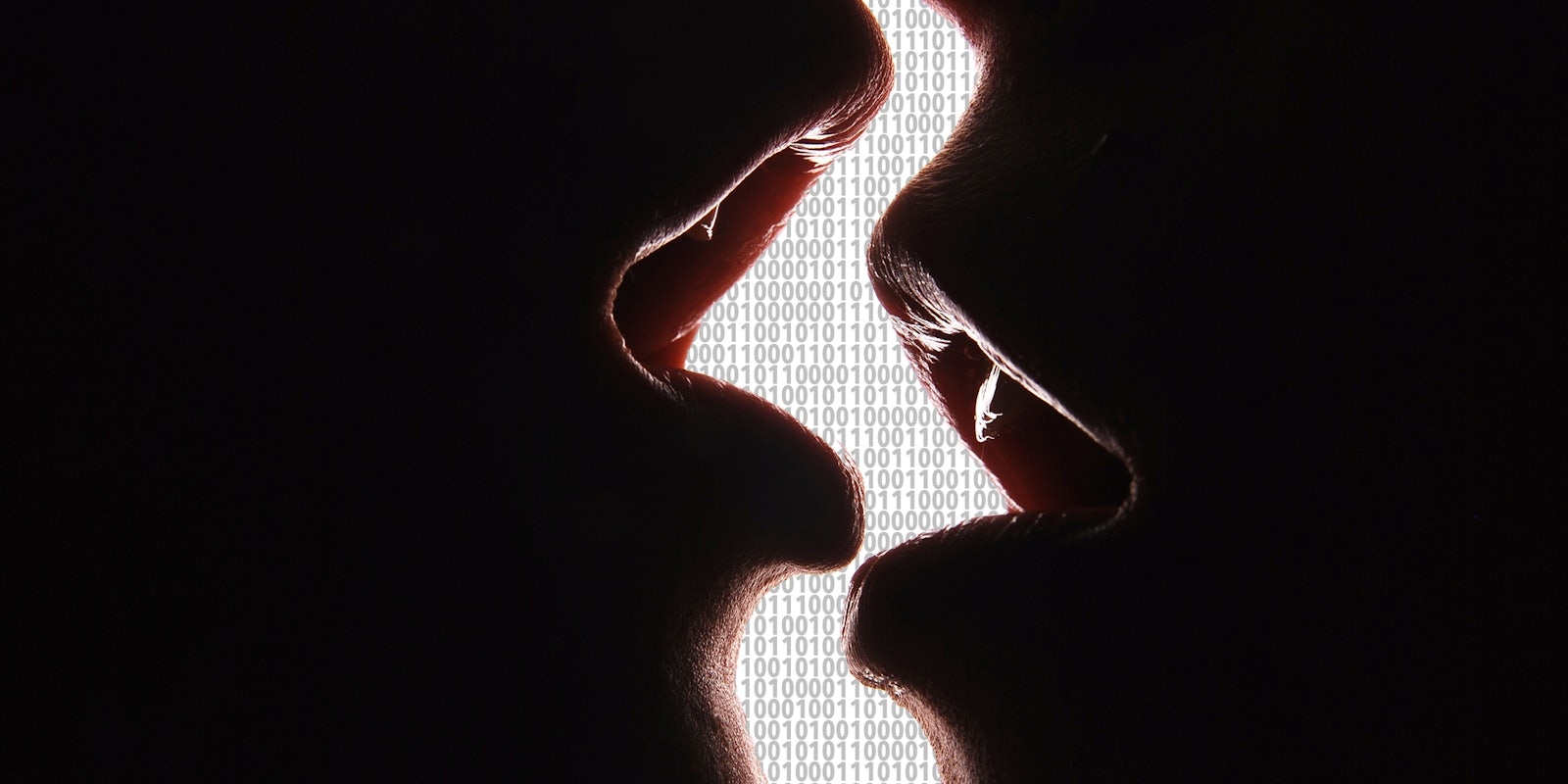What’s more important to you, sex or not getting hacked?
In a tradeoff that more women were apparently willing to make than men, a new survey into password security has found that nearly 40 percent of Americans would give up sex for an entire year if it meant never having to worry about being hacked.
Performed on behalf of password management service Dashlane, the research also revealed that 41 percent of Americans would give up their favorite food for whole month just to avoid the headache of a password reset for their online accounts.
Dashlane’s digital lifestyle expert, Ryan Merchant, explained to the Daily Dot that the purpose of the study was “to gauge consumer frustration with their online security” and focused on password problems.
“Everyone, from individual consumers to large organizations, seemingly cares about online security, but their actions don’t reflect this,” he continued. “[We] know that the majority of notable breaches stem from password hacks, yet data shows people continue to use weak passwords.”
While people say they would go to strange extremes to protect themselves, they tend to do very little to actually maintain online security from a technical standpoint. The majority of passwords are easily identifiable personal information. The statistics show that most people surveyed had used a pet’s name, family member’s name, or a basic number string like a birthdate or their phone number. This association makes it easy for anyone who is watching that person closely enough to guess it.
Password problems aside, people do place a high value on their privacy—that is true across the board, Dashlane’s study shows. One in four participants felt that sharing a social media password was a more intimate act of trust than having sex with someone, yet, surprisingly, married couples are the demographic most reluctant to share their passwords.
When it comes to what account details users get liberal with, there is a clear aversion to handing out online banking login details. Interestingly, though, 21 percent of people share their Netflix or streaming service password. This, of course, can seem harmless. But given the exhibited behavior of replicating passwords across services, it can prove to be quite careless and expose the well-intentioned to hacking if they use their streaming account password for other accounts.
Having different details for different websites and accounts can become a pain, for consumers and organizations alike. A third of shoppers have abandoned their online baskets when stumped at the account login page. According to the poll results, 81 percent of those surveyed have had to use account recovery assistance this year. One in four millennials admitted needing assistance on a monthly basis and, surprisingly, struggle more than their older counterparts (18 percent). It’s not due to the absent mindedness of ‘young people these days’ but is probably due to having such a significantly larger digital footprint.
Dashlane reckons that most consumers have around 100 accounts across different services, so password fatigue is real. Still, as the company’s CEO Emmanuel Schalit explained, “[although] the nature of online security has changed dramatically … the best line of defense we have to protect this data is passwords.”
So, for now at least, following good personal password protocol is the best and only way to protect yourself online. The good news? Eat, drink, and be merry, because you won’t need to give up food or sex to make that happen.


